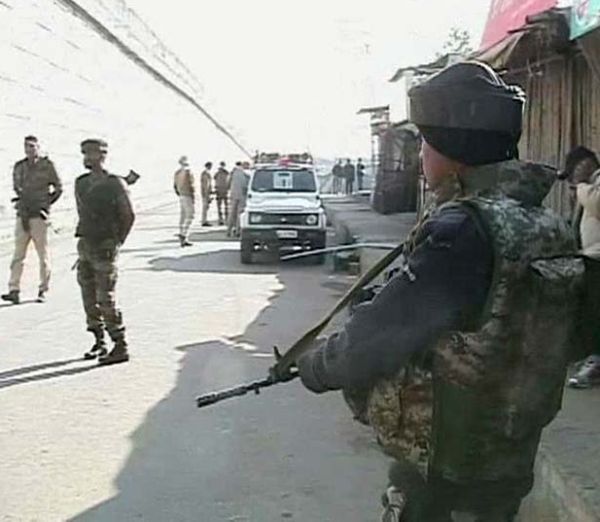'That the terrorists could still kill six security personnel, including men of the Defence Service Corps, indicates highly trained men are being sent across the border,' says national security expert Nitin A Gokhale, founder, BharatShakti.in
 The first question that popped up in the minds of security analysts within hours of the attack in Pathankot was: What happens to Prime Minister Narendra Modi's fresh initiative with Pakistan? The reactive answer would be: The process should be suspended immediately.
The first question that popped up in the minds of security analysts within hours of the attack in Pathankot was: What happens to Prime Minister Narendra Modi's fresh initiative with Pakistan? The reactive answer would be: The process should be suspended immediately.
But having invested his personal goodwill in the new effort, Modi is unlikely to call it off so quickly since the possibility of such a backlash from the Pakistani Deep State (read Pakistan's Inter Services Intelligence) using its strategic assets -- the Lashkar-e-Tayiba and Jaish-e-Mohammed, to name just two -- would have been factored in by his national security team.
That the attack was thwarted and contained around the periphery of the vital air base in Pathankot is testimony to the heightened preparations and increased intelligence available to the Indian State and the fact that New Delhi expected such an attack sooner than later.
Consider this: By Friday night, a team of the Indian Army's Special Forces had joined the Indian Air Force's Garud commandos to take on the possible attackers; two platoons of a regular infantry unit had locked down the technical area -- where the MiG-21s and the Mi-25 attack helicopters are stationed -- at the air base.
By midnight on Friday, a crack team of National Security Guard commandos had completed the anti-terror attack grid inside the air base. All this deployment had taken place after a combination of intelligence inputs that suggested Pathankot to be the most likely target.
The input was confirmed by a lucky break in the form of an intercept of a phone call made across the border to Pakistan from a phone that was snatched away from a senior Punjab Police officer by the terrorists in army uniform.
That the terrorists could still kill six security personnel, including men of the Defence Service Corps, indicates highly trained men are being sent across the border. However, all terrorists were confined to the periphery and neutralised on the periphery shows the preparation that went into responding to this attack.
So now what for India-Pakistan talks?
For years, this pattern of peace effort-followed-by-audacious-attack has repeated itself frustrating well-meaning initiatives. Modi and his team is not likely to fall into the familiar trap set up the so-called non-State actors and their mentors in the Pakistani army which would have hoped that India reacts hastily and walks away from the peace process.
For the moment, India would stay the course and the foreign secretary-level talks would most likely go ahead as scheduled, but Modi will be under unbeatable pressure if another terrorist attack was to take place. That is for the future.
Right now, India needs to put pressure on Pakistan and demand demonstrable action against JeM. While it may not be forthcoming, the international community, especially the US, which keeps putting pressure for resumption of talks, must now publicly ask Rawalpindi to rein in the rogue elements or else face action.
Simultaneously, India must keep its powder dry and have a plan ready that would involve striking back at elements in Pakistan should another provocation occur on the near future. That is what the nation expects from Narendra Modi.










